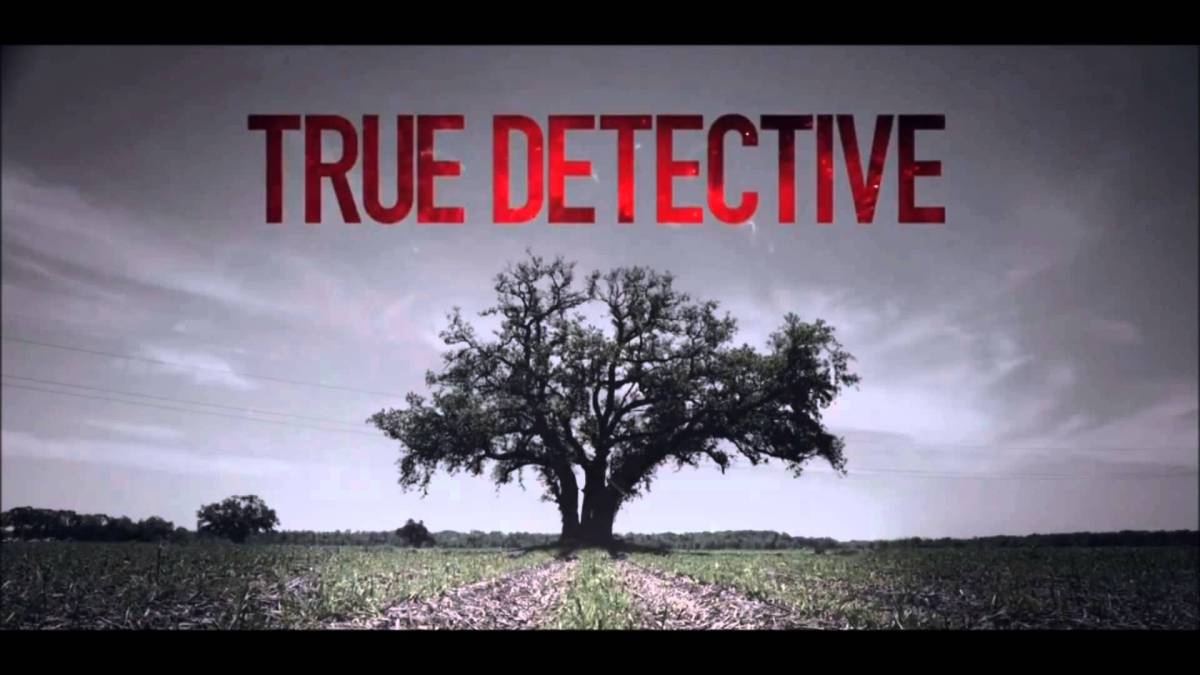On
True Detective, Rust Cohle (Matthew
McConaughey), an alcohol riddled ex-detective, likes to muse about the nature
of existence. Borrowing from Nietzsche, he explains that “Time is a flat
circle.” Cohle believes that people and their lives repeat on an infinite loop.
As the series nears it conclusion, Cohle stresses to his ex-partner, Marty
Harris (Woody Harelson) of his need to complete the loop—solving a seventeen
year old murder case that has defined his and Harris’s careers. In exploring this idea, known as “eternal
return,” True Detective raises
questions about identity. The contrasting characters of Cohle and Harris and
its setting in rural Louisiana allow showrunner Nic Pizzolatto and director Cary
Joji Fukunaga to investigate these philosophical questions.
 |
| HBO's latest Great Drama |
Rust
Cohle differs from the typical Matthew McConaughey role. In Dallas Buyers Club, McConaughey’s
undeniable charm and charisma won over audiences and Oscar voters. In True Detective, he dominates the screen
with an understated delivery of Cohle’s philosophical monologues. He lures in,
rather than bludgeons, the audience with his performance. Additionally
McConaughey’s trademark handsomeness is largely absent. Cohle’s nickname, “The
Tax Man,” reveals his character and identity. Cohle never hides who he is. He
studies his giant case ledger, mediates upon it, and sketches the world around
him. Cohle is certain in his beliefs, denigrating organized religion and most
conventions of human behavior. This leads to conflict with Harris almost
immediately when the two investigate the murder of a young prostitute in rural
Louisiana. Pizzolatto provides Cohle a tragic history, mainly the death of his
daughter and dissolution of his marriage. The trauma in Cohle’s life doesn’t
dismiss or diminish his beliefs, rather it helps explain him. Ultimately, his
abrasiveness, determination, and philosophical beliefs drive the plot of the
series.
Harrelson’s
Marty Harris is very much the opposite of Cohle. Harris constructed his
identity out of contradicting words and actions. He shrouds his hypocrisies in
masculine platitudes about family, children, and work. After the revelation of
his affair with a younger women, Harris blames his mistress. He lies to his
family, his partner, and ultimately himself. These lies weigh down Harris until
it boils over at inopportune moments, including after an encounter with his
mistress’s new boyfriend. Harrelson displays this internal tension through
Harris’s jaw. The perpetually clenched jaw seems ready to shatter Harris’s head
in a million pieces at any moment. Harris’s entire life is a performance. In
front of his daughters, he acts as a father should without ever actually
raising his children. At the end of series, he admits he hasn’t seen them in
two years. As a cop, Harris carries himself with authority and conviction and
tries (and fails) to hide his true feelings and hypocrisies. By the end of the
series, he finally breaks down in tears in front of his family, offering a
glimpse of the damaged man inside.
| Partners: Harris and Cohle. |
Writer
Nic Pizzolatto and director Cary Joji Fukunaga also used the rural setting of
Louisiana to explore these questions of identity. Over the course of the
series, from 1995-2012, they show the ever changing nature of Louisiana’s
coastline. The bayous and swamps hide evidence. This poor, rural, and neglected
area allows crime to flourish. As Cohle notes, children can disappear into the
bayou and no one in New Orleans or Baton Rouge will ever notice. The
perpetrators of the murders that Cohle and Harris investigate wear masks and
hide their true identities. They dwell on the margins, reveling in shifting
Cajun and Vodun traditions, where identities come and go. By relying solely on
Pizzolatto and Fukunaga, True Detective also
maintains a consistency of voice and visuals. Pizzolatto’s writing delves
deeply into the contrasting characters of Cohle and Harris, their differing
characters evident in their widely different names. Fukunaga provides the show
a visual language. He explores Cohle’s drug riddled past, the expansive and
emptiness of rural Louisiana, and the unrelenting interviews of Harris and
Cohle. He also offers something extraordinary, a six minute long tracking shot
that ends episode four, Who Goes There,
that can’t be captured in words.
Ultimately
True Detective begins as murder
investigation and offers a philosophical investigation into humanity and who we
are.

No comments:
Post a Comment